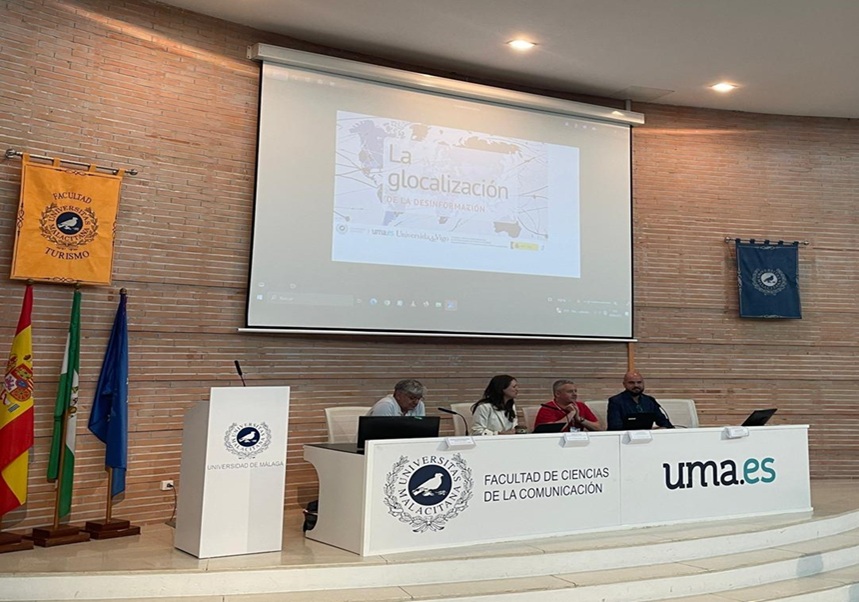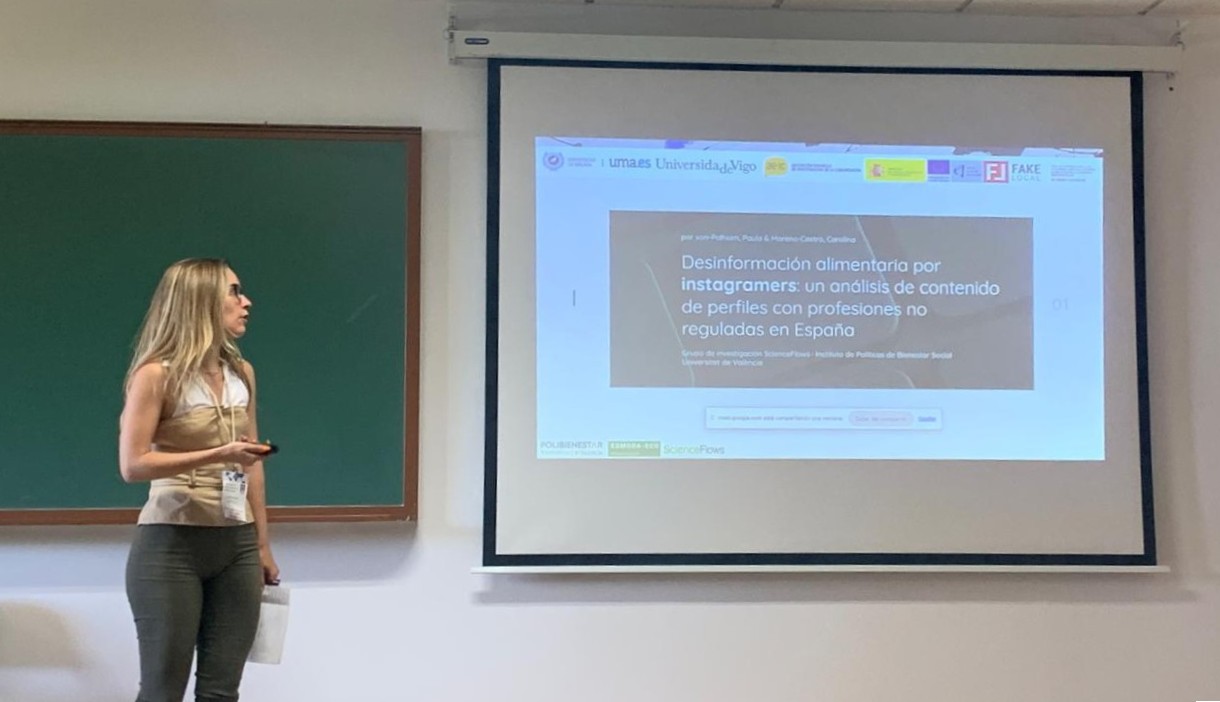
A research project by the ScienceFlows group analyses 108 Instagram posts by macro-influencers during COVID-19, revealing the spread of nutrition misinformation by profiles without formal qualifications
From 30 June to 2 July, we took part in the FakeLocal Congress: mapping misinformation in Spain’s autonomous communities and local entities and their digital ecosystem (PID2021-124293OB-I00), a multidisciplinary space for discussion and reflection on the challenges posed by misinformation at the local level. organised by the University of Malaga and the University of Vigo. The closing ceremony also featured the participation of Dr. Dafne Calvo, from the University of Valencia, who is also a researcher at Iberifier. She spoke about disinformation during the Dana in Valencia, presenting different cases collected in the book ‘Bulos y barro’ (Hoaxes and Mud), by Dr. Germán Llorca, Dr. Dafne Calvo and Dr. Lorena Cano.
During the event, our FPU doctoral researcher Paula von Polheim, in collaboration with Dr. Carolina Moreno, Professor of Journalism at the University of Valencia, presented a study analysing the nutrition discourse promoted on social media during the COVID-19 pandemic. The research focuses on national influencers with unregulated professional backgrounds in nutrition, who produced Instagram content throughout 2021.

A critical analysis of food discourse
The study, titled “Food misinformation by Instagrammers: A content analysis of profiles with unregulated professions in Spain”, focuses on macro-influencers with over 100,000 followers, whose training stems from courses or programmes not officially recognised within Spain’s academic system. From an initial broader sample of 24 influencers, 5 profiles and 108 posts were selected for detailed analysis. Key findings include:
- The absence of scientific references in the content shared.
- The spread of messages linking food with topics such as the environment or local consumption, without supporting evidence.
- The use of language that appears rigorous, but lacks verifiable data or substantiated sources.
How do we communicate science on social media?
This study highlights how digital spaces can serve as amplifiers of pseudoscientific content, especially when that content is shared by high-profile users without formal academic training. The research underlines the need to make science accessible to the general public, avoiding excessive technical jargon, while also warning of the risks posed by oversimplification that may compromise accuracy and scientific rigour.
A clear conclusion: the need for digital scientific literacy
The study calls urgently for improved scientific literacy in social media environments. It is essential to equip the public with the tools needed to assess the quality of the content they consume, especially on sensitive topics such as health and nutrition. To sum up, public health also plays a crucial role on platforms like Instagram.









